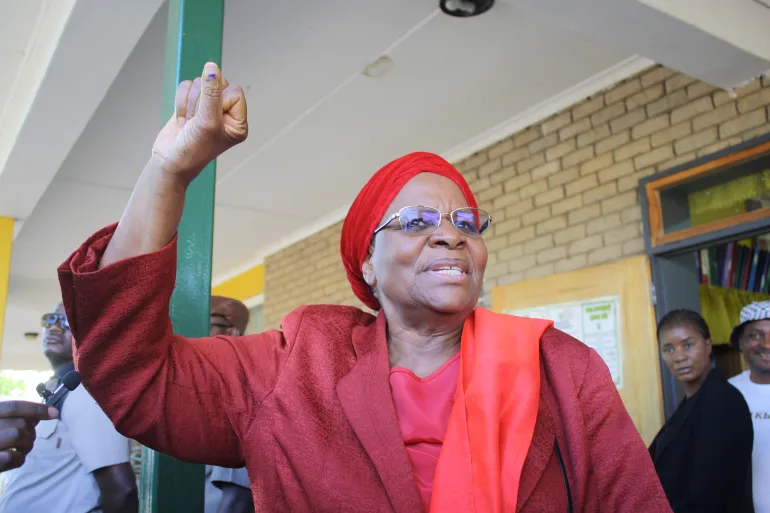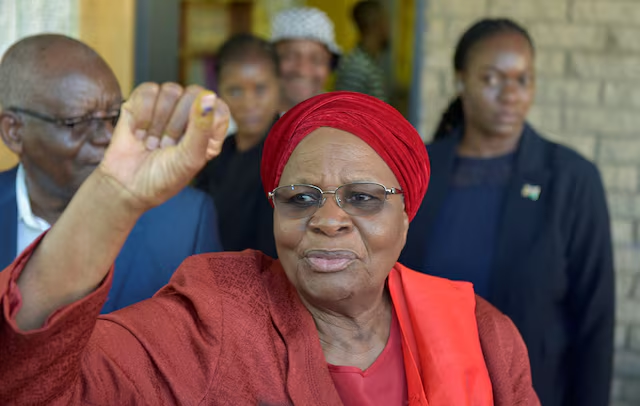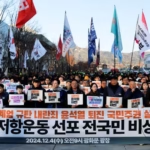
Netumbo Nandi-Ndaitwah has been elected as the President of Namibia, making history as the country’s first female leader, according to results released by the electoral commission.
The 72-year-old secured 57% of the vote, surpassing expectations and avoiding a potential run-off, with the official results confirmed by the electoral commission on Tuesday.
Nandi-Ndaitwah Declares Victory Amid Controversy
After being declared president-elect, Netumbo Nandi-Ndaitwah expressed, “The Namibian nation has voted for peace and stability.”
Her victory solidifies the South West Africa People’s Organisation (SWAPO) party’s 34-year dominance, which began after Namibia gained independence from apartheid South Africa in 1990, a result that remains contested.
Opposition parties have rejected the election outcome, citing several technical issues, such as ballot paper shortages, which led to extended voting until Saturday. Long lines caused some voters to abandon their attempts on the first day after waiting for up to 12 hours.
The opposition claims the voting extension was illegal and has vowed to challenge the results in court.
Opposition Candidate Panduleni Itula Denounces Election Results
Panduleni Itula, the candidate from the main opposition party Independent Patriots for Change (IPC), secured 25.5% of the vote, trailing behind Nandi-Ndaitwah, according to the electoral commission.
“It is clear that the rule of law has been severely violated, and these elections cannot be considered free, fair, or legitimate in any way,” Itula stated on Saturday.
Nandi-Ndaitwah ascended to the role of vice president in February following the death of President Hage Geingob while in office.
Though SWAPO has held power for decades, the party has faced growing disillusionment among young voters, who cite high youth unemployment and persistent inequalities as major issues.
Nandi-Ndaitwah’s political journey began in the 1970s as part of the underground independence movement. She later returned from the UK to join parliament in 1990 and has served in various ministerial roles over the years.



